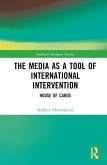Can the Balkans ever become a peace peninsula like Scandinavia? With enlightened backing, can it make common cause with the rest of Europe rather than being an arena of periodic conflicts, political misrule, and economic misery? In the last years of the twentieth century, Western states watched with alarm as a wave of conflicts swept over much of the Balkan peninsula of South-East-Europe. Ethno-nationalist disputes, often stoked by unprincipled leaders, plunged Yugoslavia into bloody warfare; Romania, Bulgaria and Albania struggled to find stability as they reeled from the collapse of the communist social system; Greece, the only wholly Balkan state to remain outside the communist bloc, became embroiled in the Yugoslav tragedy. This book examines the politics and international relations of the Balkans during a decade of mounting external involvement in its affairs. Tom Gallagher asks what evidence is there that lessons have been learned and applied as trans-Atlantic engagement with Balkan problems enters its second decade. His book identifies new problems: organized crime, demographic crises of different kinds, and the collapse of a strong employment base. "The Balkans in the New Millennium" contains chapters on Bosnia, Serbia, Macedonia and Greece as well as on the Kosovo crisis and the relationship between the EU and the Balkan region. It should interest students, researchers and all those with a general interest in Balkans politics.
Hinweis: Dieser Artikel kann nur an eine deutsche Lieferadresse ausgeliefert werden.
Hinweis: Dieser Artikel kann nur an eine deutsche Lieferadresse ausgeliefert werden.









